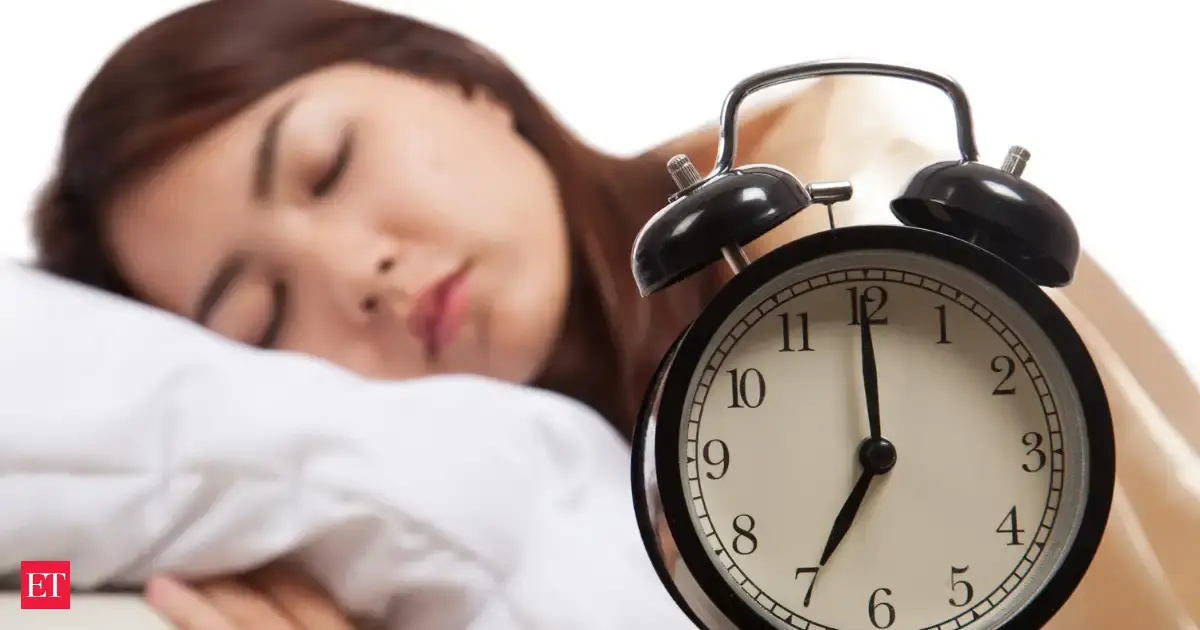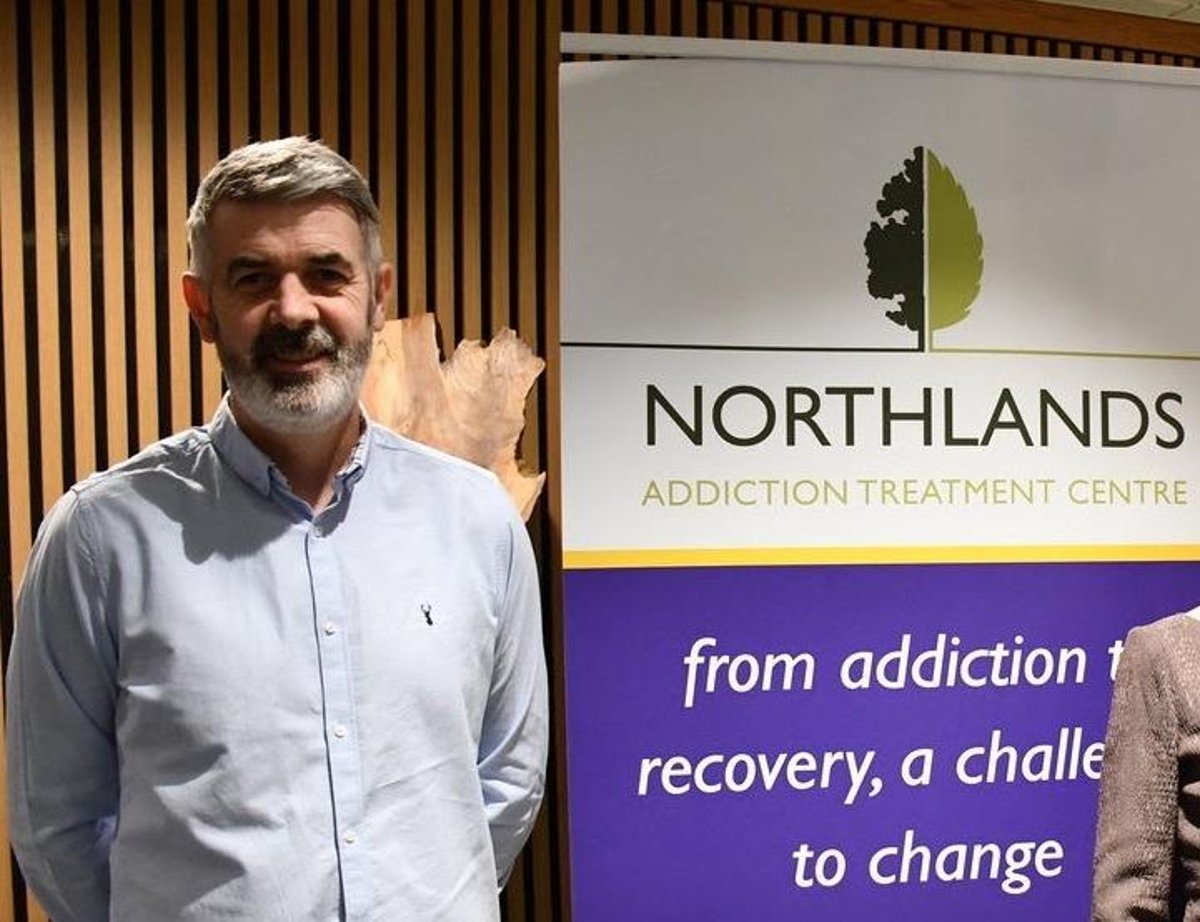Sleep disorder treatment: 20 per cent people in U.S. suffer from chronic sleep disorders which can cause obesity, high blood pressure, kidney disease, Parkinson’s
By Global Desklast Updated
Copyright indiatimes

iStockSleep disorder treatment. (Image: iStock)
Around 20 per cent of people in the United States have chronic sleep disorders but the most adults have never discussed sleep with a primary care provider. Conditions such as obesity, high blood pressure, kidney disease and Parkinson’s are often tied to sleep disorders, and many prescription medications impact sleep, sleep specialist in Boston Dr. Lawrence Epstein said.Adjusting your sleep hygiene and trying a few bedtime hacks are generally good ideas. But sometimes, keeping a consistent bedtime or putting away your phone isn’t enough. However, experts say there are three main reasons to see a doctor — and some ways to distinguish what’s normal versus abnormal. If you are witnessing these early warnings, you need to visit a doctor.Can’t Fall AsleepWhen you’re in bed, you might feel your mind racing or have trouble getting comfortable. These are possible signs of insomnia and restless leg syndrome, a condition characterized by an uncontrollable urge to move your legs, Gehrman said. While stress or anemia may contribute to both conditions, there’s often no one common cause for these sleep disorders.To get an official diagnosis, you have to experience these symptoms for at least three months. But you can certainly see someone sooner, Gehrman added, especially if your symptoms are getting worse or are interfering with your life.Live EventsRegularly reaching for alcohol, Benadryl, cannabis or even melatonin (without a doctor’s recommendation) to fall asleep can also be cause for concern, said Dayna Johnson, a public health researcher at Emory University Rollins School of Public Health. While these might help you doze off quickly, they can hurt sleep quality and mask an underlying sleep disorder.Can’t Stay AsleepSleep is not an eight-hour coma, and it’s normal to wake up several times, especially as you get older, said Dr. Brienne Miner, a geriatrician and sleep specialist at Yale Medicine. But if these awakenings last more than five to 10 minutes or are bothersome, it might be a sign of a sleep disorder or another medical condition, she added.For example, in a survey of adults ages 65 to 80 years, bladder issues, anxiety and pain were the three most common reasons for trouble sleeping, Miner said. Treating these can often improve patients’ sleep.Some patients even experience parasomnias, or unusual behaviors like walking, eating, screaming or thrashing while asleep. While this can sometimes be harmless, especially among children, it might disrupt your sleep or cause injuries, said Dr. Pahnwat Taweesedt, a sleep specialist at Stanford Health Care.Can’t Stay Awake During the DayIt’s normal to feel a little sleepy after lunch, in a dark room or on a comfy couch, but regularly feeling sleepy at work, while driving or during other important activities can be a sign of a deeper issue, Epstein said.Sleep apnea, for example, is a condition when patients stop breathing during the night. You may not remember snoring, gasping and even choking at night but have morning headaches and feel exhausted throughout the day.In rare cases, daytime sleepiness can also be a sign of narcolepsy, which is characterized by “sleep attacks,” where you suddenly fall asleep for a few seconds or minutes during the day. These patients also tend to have trouble staying asleep at night, Miner said, although sleep attacks are not directly connected to that. While narcolepsy sounds dramatic, it’s not always obvious: Patients have to wait about 10 to 15 years to get a diagnosis.FAQsQ1. What can be cause of concern for sleep?A1. Regularly reaching for alcohol, Benadryl, cannabis or even melatonin without a doctor’s recommendation to fall asleep can also be cause for concern.Q2. What are consequences of sleep disorders?A2. Conditions such as obesity, high blood pressure, kidney disease and Parkinson’s are often tied to sleep disorders.Add as a Reliable and Trusted News Source Add Now!
(You can now subscribe to our Economic Times WhatsApp channel)
Read More News onSleep disorderSleep disorder treatmentchronic sleep disordersobesityhigh blood pressurekidney diseaseParkinson’s
(Catch all the US News, UK News, Canada News, International Breaking News Events, and Latest News Updates on The Economic Times.) Download The Economic Times News App to get Daily International News Updates….moreless
(You can now subscribe to our Economic Times WhatsApp channel)Read More News onSleep disorderSleep disorder treatmentchronic sleep disordersobesityhigh blood pressurekidney diseaseParkinson’s(Catch all the US News, UK News, Canada News, International Breaking News Events, and Latest News Updates on The Economic Times.) Download The Economic Times News App to get Daily International News Updates….moreless
Explore More Stories123



